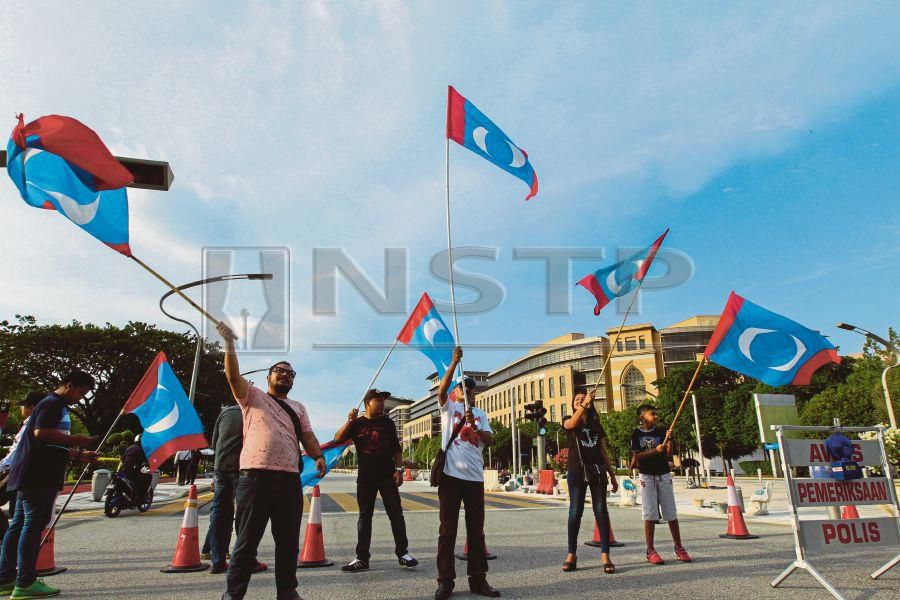WHAT are several developments in Southeast Asia’s political sphere that are worth looking forward to in the next six months?
The first on the radar is Thailand. Following a string of delays in the conduct of a general election, the kingdom will likely see another postponement from the previously designated date (Feb 24). The reason given by the junta-led government this time was that post-election events could clash with the coronation of King Vajiralongkorn on May 4.
When the nation finally gets to cast their ballot, voters will determine the future formation of the House of Representative’s 500 elected seats and the fate of Prime Minister Prayut Chan-o-cha.
The country’s leader has a big stake in the poll: having obtained his seat after leading a military coup in 2014, he seeks to democratically legitimise his premiership.
From a cynic’s viewpoint, the upcoming election might just be a phase than an apex in Thailand’s democratic development. As long as competing political forces, including the military, the bureaucracy and remnants of the Shinawatra dynasty, continue to dance to the old tune, such as exploiting the urban-rural split, the cycle of regime shifts between democratically elected government and military junta will persist. Twelve coups have been staged in the country since 1932 and there is no guarantee that the election will break the cycle.
Regardless, Thai scholar Dr Thitinan Pongsudhirak has argued that the advent of King Vajiralongkorn could introduce a fresh dynamic in the power play, although there is always a possibility of it creating a new divide among these forces. As a successor to the previous monarch, King Vajiralongkorn may establish a new relationship between the monarchy and the aforementioned political forces.
Indonesia is another case altogether. With the simultaneous presidential and legislative elections set to be held on April 17, the nation’s political euphoria will continue to build up for the next three months.
The polarisation has especially intensified since the registration of President Joko “Jokowi” Widodo-Ma’ruf Amin and Prabowo Subianto-Sandiaga Uno pairs as candidates for the country’s top seats.
This is exacerbated as both camps have engaged in issues-based campaign strategy, which focuses on creating polemics and making sensational claims to undermine each other.
Although effective in grabbing voters’ hearts and minds, this strategy fails to give voters an insight into both pairs’ programmes. As a result, political discourse in the past few months had been dominated with conversations on the size of tempe or the price of nasi ayam, among others. Addressing relevant issues such as the currency’s strength, disaster management or healthcare is often done in a sensational rather than critical manner, thus further distracting voters from the candidates’ policies.
Having been exposed to countless polemics in the past three months, the public might have difficulty accommodating all these sensation-laced issues into their decision-making process. In an interview, political scientist Dr Philips Vermonte underscored the difficulty for the grassroots to conduct personal investigation into the validity of these trivial issues: This is because by the time a deeper research on an issue is concluded, a new issue would have taken over the previous one.
Last but not least, Malaysia will again receive an inflated worldwide attention come May, the first anniversary of Pakatan Harapan’s reign after a watershed election last year.
The same election propelled Malaysia’s image internationally, with many labelling it as a beacon of hope in an age of democratic decline. Surely, this is a great expectation that critics would certainly engender in their review on the government’s performance thus far.
A few weeks ago, Datuk Steven Wong of ISIS Malaysia reminded us how recent political development had impeded the crucial institutional processes.
While this might appear understandable for a country that embarked on this journey short of a year ago, the government must ensure that progressive feats on this front are sustainable on a long-term basis. In comparison, Indonesia’s democratisation continues to evolve and attract criticism alike, despite having started this process in 1998.
The government should focus more on delivering its promises rather than on the shortfalls of the previous administration. Let achievements in economic development, political maturity and anti-corruption drive speak louder than sensational rhetoric. Ultimately, a performing government would tame criticism from democracy enthusiasts, while also instilling Malaysians with a confidence in their nation.
Some immediate observations can be inferred from these three depictions.
One, the diversity of political institutions, actors and systems in all three means that democratisation would manifest differently.
As a foreign system to these Southeast Asian countries, it would be natural for democracy to mature slower than the expectation of extra-region observes. In fact, these Southeast Asian countries should not be held accountable for the alleged decline of democracy globally, especially when its systems or values are being questioned in its traditional bastions in the West.
Two, all three could develop a propensity to prioritise domestic over regional affairs due to political imperatives indicated above.
This casts a legitimate question on their commitment to the Asean process.
At the age when the ties between the world’s superpowers are incrementally erratic, the world will be watching if all Asean members, including Thailand, Indonesia and Malaysia, could finally come together and collectively play a mediating role.
In conclusion, 2019 will likely become a politically vibrant year for all the countries
This article first appeared in the New Straits Times on January 17, 2019.





